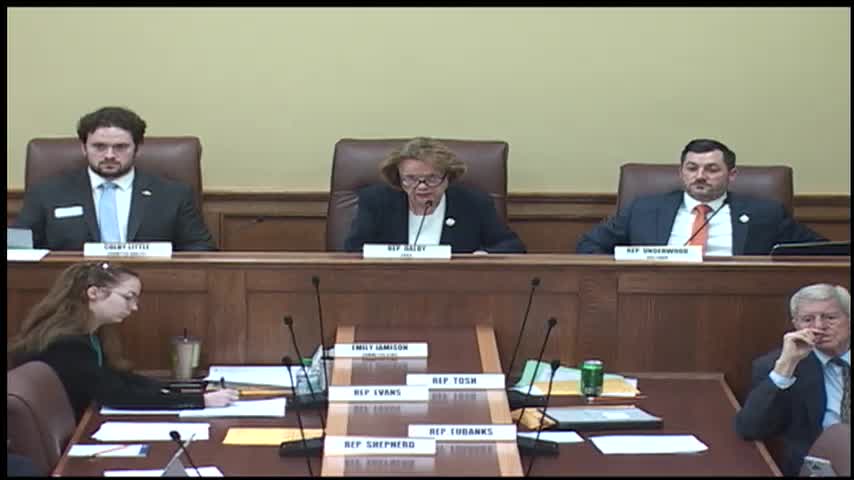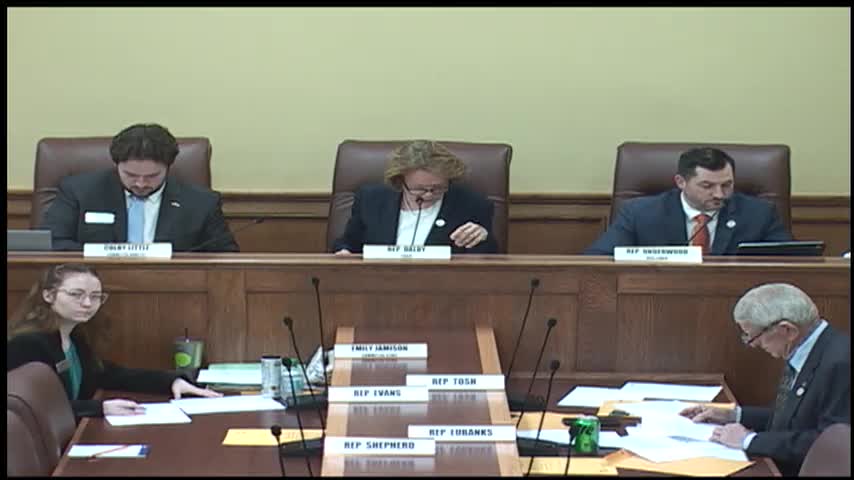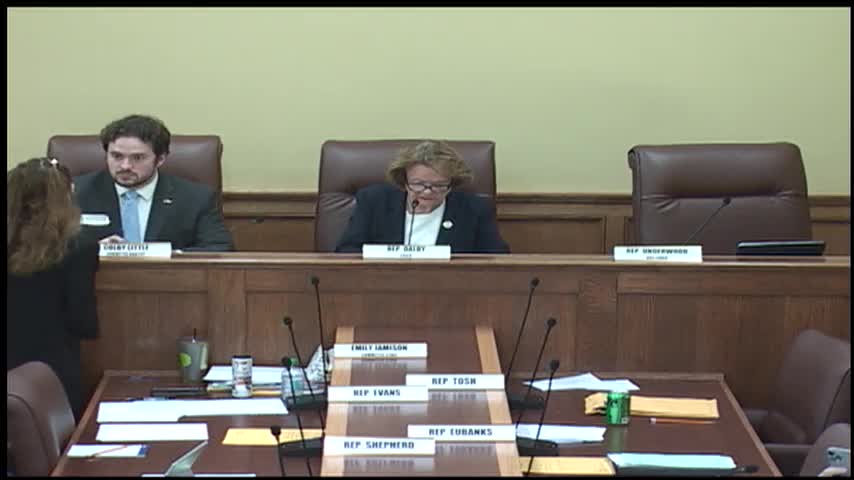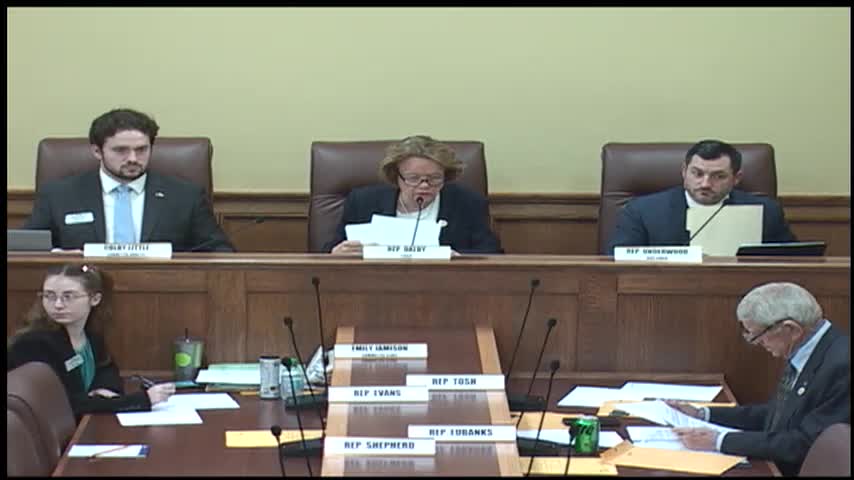Article not found
This article is no longer available. But don't worry—we've gathered other articles that discuss the same topic.

Committee hears HB1615, a state religious-freedom measure; proponents and members raise access and recusal questions

Committee approves bill raising mandatory minimums for offenders in positions of trust over children

Lawmakers debate using prior uncharged conduct to enhance domestic battery penalties; sponsor pulls bill for more work

